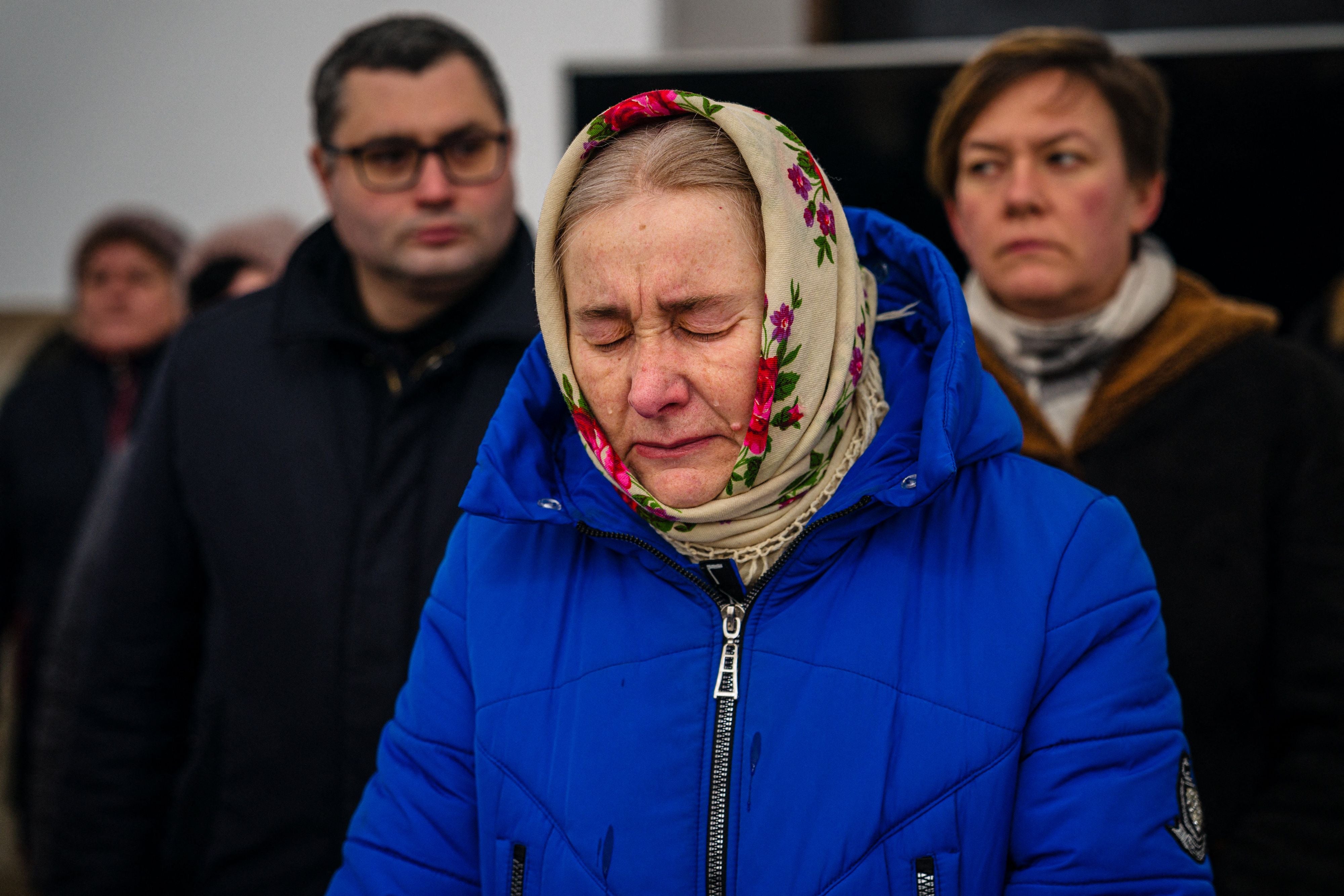The sheer toll of human misery wrought by the war in Ukraine is difficult to comprehend
Editorial: A period for reflection about the recent past also prompts thoughts about an uncertain future

It was Joseph Stalin who said that “the death of one man is a tragedy, the death of millions is a statistic”. The quotation may in fact have been apocryphal, but it stuck because it entirely fitted his unhuman modus operandi, and it can be well applied to his successor in the Kremlin, spiritual and temporal, the equally imperialist Vladimir Putin.
As Ukraine’s public prosecutor, Yuriy Belousov, tells The Independent in an exclusive interview, more than 100,000 Ukrainian civilians are believed to have been killed in the year since Russia launched its brutal invasion – more than 10 times the current official death toll.
The additional tragedy is that so many of those deaths came as a result of the deliberate targeting of homes, schools and hospitals by the Russian forces. There have been tens of thousands more Ukrainian and Russian military casualties, and millions of Ukrainians driven from their homes.
Add in the injured and bereaved, and the sheer toll of human misery represented by these statistics is indeed difficult to comprehend. During the UK minute’s silence for Ukraine on Friday, though, many did, and all understand who is responsible for this war, the largest conflagration in Europe since 1945, and an entirely unnecessary one. A tragedy, indeed.
A period for reflection on the recent past also prompts thoughts about an uncertain future. The Russian spring offensive, much vaunted, seems to be under way already, though whether it lives up to its billing remains to be seen.
Some 130,000 Russian troops have been massing on Ukraine’s borders, pinning down smaller forces, and adding to the trepidation. The Russians, it must be assumed, have learned some lessons from the failures and humiliations of the past year. If so, then this onslaught, backed by Russian air power not much in evidence before, will test Ukrainian resolve and military professionalism once again.
They are better trained, better motivated, and better equipped than the enemy. The Russians and their mercenary allies from the Wagner Group, make up for those shortcomings with war crimes and numerical superiority.
The battles of 2023 may be more evenly balanced than those of 2022, and may well sink into a struggle of attrition. But the Ukrainians are capable of winning this war, something that seemed impossible a year ago.
All the more reason, then, for the West not to snatch defeat from the jaws of victory. The sacrifices made by the people of Ukraine should not be in vain. Western leaders cannot allow the huge volume of military equipment from Nato and its allies sent east, from missile defence systems to advanced battle tanks, to be wasted because of a timidity about sending the fighter jets essential to victory.
There are obvious and substantial logistical challenges in supplying jets, compared as they’ve been to a Formula One car by the defence secretary, Ben Wallace. They need skilled crews to service them, as well as trained pilots. Those things will not be easy to achieve, but the sooner that work begins the better.
The other short-term challenge is to ensure that China doesn’t become the military and economic ally of President Putin, and embark on a disastrous course of supplying arms, dual-use componentry and financial support that weakens the effects of sanctions and the Ukrainians’ efforts on the battlefield.
The US secretary of state, Antony Blinken, has warned China about the “consequences” that would follow. The Chinese, the world’s major exporter and manufacturing power, must understand that this war is bad for business, and that China stands to lose a lot from prolonging it. It may be for that reason that they’ve launched their latest peace plan and seek to end the conflict quickly. It should also be apparent that that cannot happen while Russia illegally occupies the territory of a neighbour.
It is not too soon to give some thought about what “peace” looks like when this war ends. Despite the atrocities of the last year – indeed, because of them – it needs to be as sustainable as possible. The Archbishop of Canterbury is wise to warn that Russia should not be left as a festering, resentful, revanchist power as Germany was after the First World War.
The peace settlement should indeed leave Russia secure in its borders. The West, guided by Ukraine, needs to confront some difficult issues as it lays down some early plans for peace – a task neglected in most wars, and dreadfully so in Iraq and after the end of the Cold War in Russia.
What is to be done with Vladimir Putin? How are the atrocities and war crimes to be resolved? What will the constitutional rights of Russian speakers in Ukraine be? How will the entire region find a peaceful route to stability and prosperity? Who will guarantee peace?
President Zelensky, a Churchillian figure now, has said that all wars ended with a settlement, and he too has no doubt given those questions careful consideration.
He has shown himself willing to talk to Russia, on condition of territorial integrity, and when the time comes the West can trust him to take the lead. It will greatly assist him in prevailing over his nuclear-armed adversary and securing victory and a just peace if his friends in the West gave him all of the tools he needs to finish the job.






Join our commenting forum
Join thought-provoking conversations, follow other Independent readers and see their replies
Comments